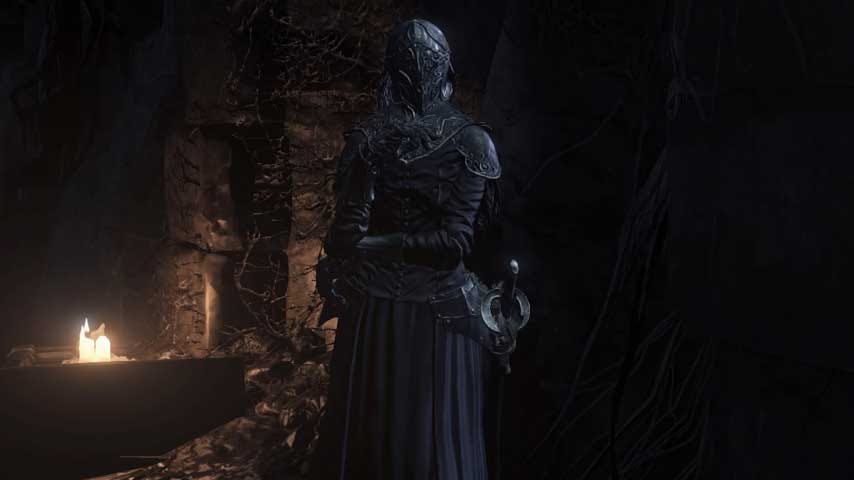Introduction
It is an uncontroversial point (in so far as there are
any) to consider Dark Souls as
premising much of its narrative drive on the polarity between light and dark.
Though originally introduced to these metaphysical concepts as an antagonistic
binary,[i]
there are many points throughout the fragmented narrative of the games that
calls this binary into question. A staple of its distinct narrative style, Dark Souls is no stranger to the
persistent disruption of the stories that it chooses to reveal – whether these
disruptions are about questioning the fundamental nature of the world as we experience
it, doubting that our character is truly the prophesied figure of divinely
mandated destiny, or instilling a suspicion of the motives of other characters
as they presented.[ii]
Disruption as the motivation to question, to doubt, to regard with suspicion,
is a pervasive and inextricable part of Souls’
storytelling, and the dualistic metaphysics of light and dark are no exception
to this. And yet, when we consider the question(s) of gender with regard to the
series, we are immediately met with a vision of gender that almost without
exception repeats and reinforces the traditional binary of man and woman. This
is to say that despite its broader concern with structuring its narrative
around a series of disruptions and shades of grey, gender is continually reasserted
as a naturalised narrative site within Souls.
As is to be expected, the work the series does to maintain this binary and
thereby the salience of gender to its story is often done through stylistic
moves that mobilise various kinds of norm that play into the conceptual
structures of misogyny, sexism, and homophobia (though this is not an
exhaustive list).
My concern within this essay to make explicit the
mechanisms with which gender is uncritically repeated within the Souls games. Beginning with the overt
ways that gender plays into the very metaphysical assumptions of the Souls’ universe(s?), I shall explore how
womanhood is essentialised within the narrative and how this essence is aligned
with the metaphysical ‘dark’ in a way that is either absent or far less overt
with male characters. Given the numerous ways in which the series replays
symbolic associations between darkness and evil, the figure of the woman within
Souls is maintained in the position
of the other – specifically the other as a threat. Just as the opening cutseen
instills us with a fear that the dark might win out over the light – for “soon
the flames will fade and only Dark will remain. Even now there are only embers,
and man sees not light, but only endless nights”[iii]
– the game gives us a parade of female
figures that are to be feared for the corruption with which they are so
frequently equated. And we shall see the precise kinds of violation and
violence that the fear of women is seen to justify within the narrative.
This essay shall also track the ways in which Souls inadvertently reveals the failure
of the traditional gender binary. As such, the final part of this essay will
consider the figure of Darkmoon Gwyndolin – whose gender nonconformity provides
a useful site of contention for examining how gender works in the series as a
whole. Through Gwyndolin, we shall examine not only Souls’ use of gender as a coercive structure within the power
dynamics of Lordran, but also the possibility of seeing within the figure of
Gwyndoin the ultimate failure of binarist conceptions of gender.
It is important to
note that none of these critiques should be regarded as damning or as holding Dark Souls in contempt. Contrarily, they
are motivated by a passionate interest in the Dark Souls games, and consider my personal love of these games as a
key motivation for my critique.
 |
| Yuria of Londor - [source] |
Sudah seru, odds nya menguntungkan lagi!!. itulah permainan sabung ayam online di agen sabung ayam
ReplyDeleteDapatkan informasi penting dalam dunia sabung ayam di website bawah ini
https://agentaruhanayam.quora.com/Memahami-Permainan-Sabung-Ayam-CFT2288-Yang-Baru-Diluncurkan